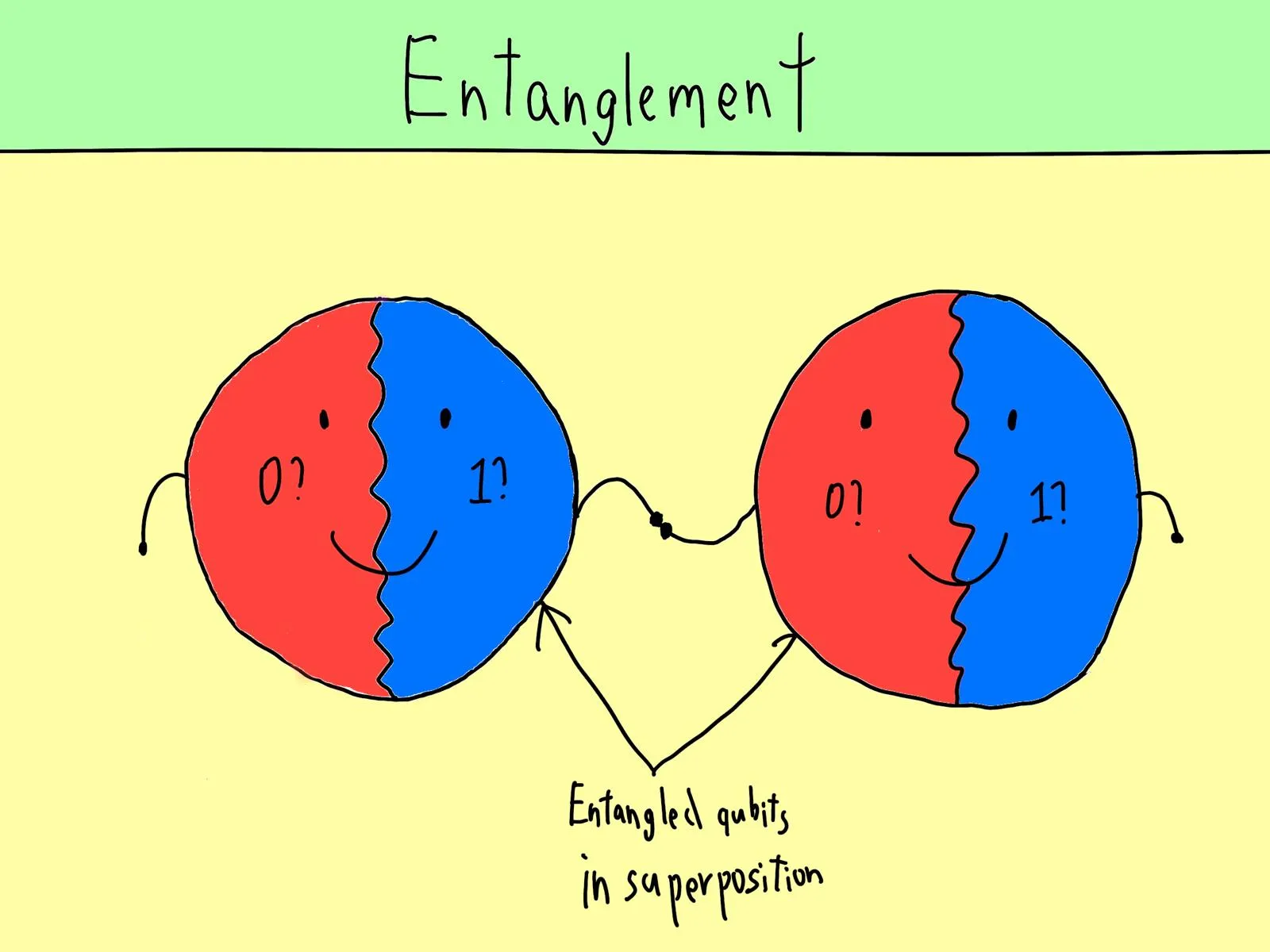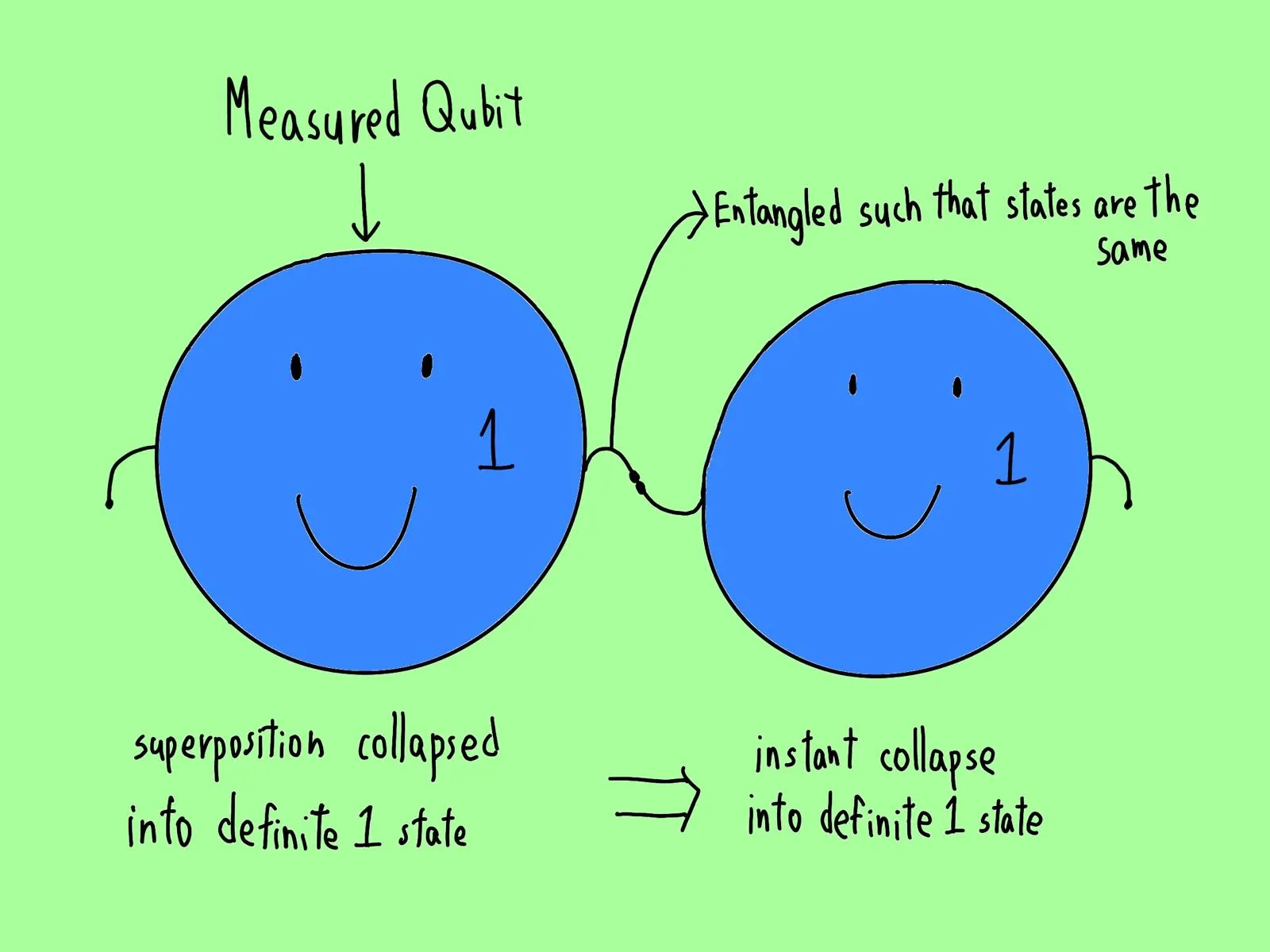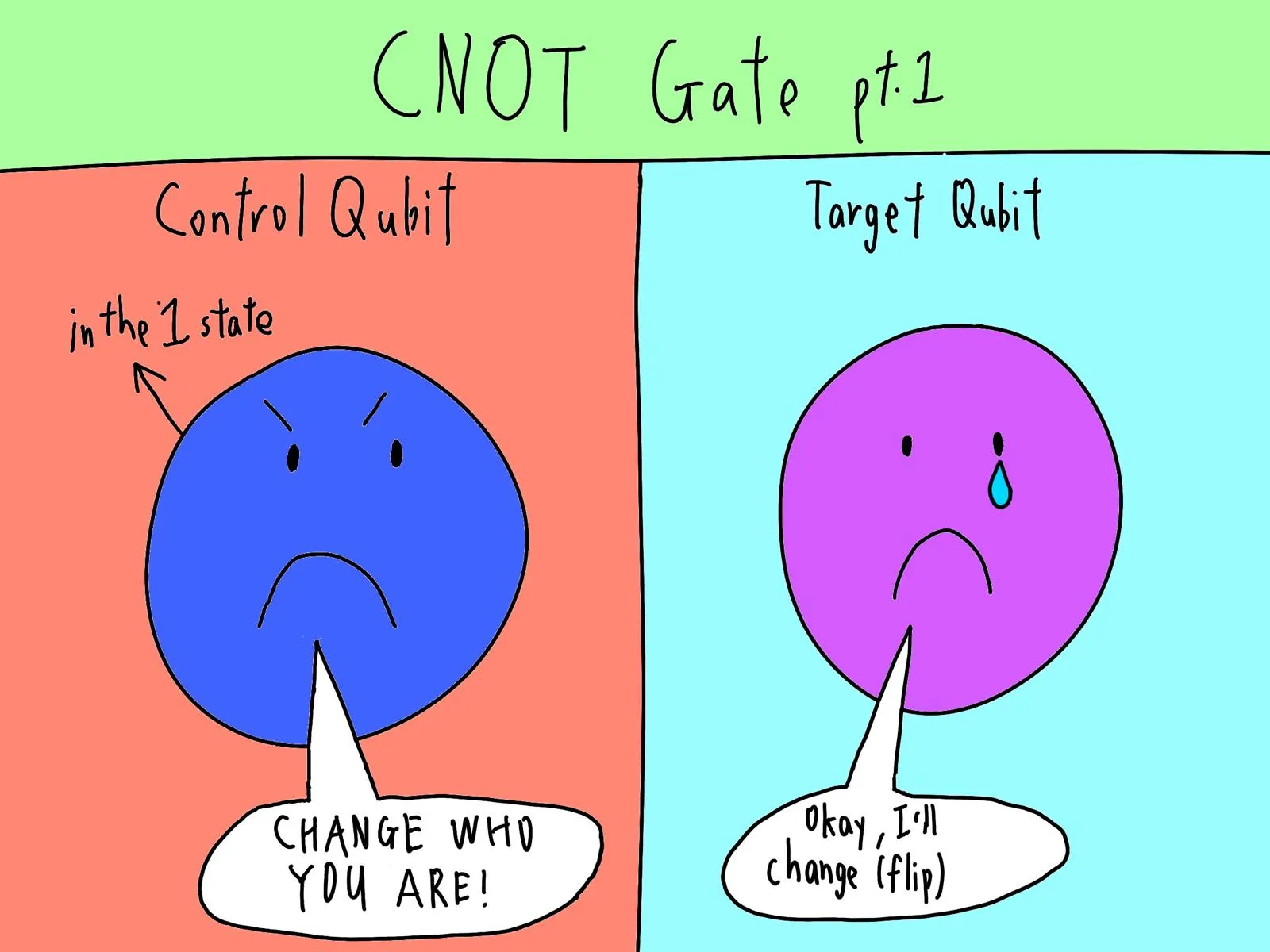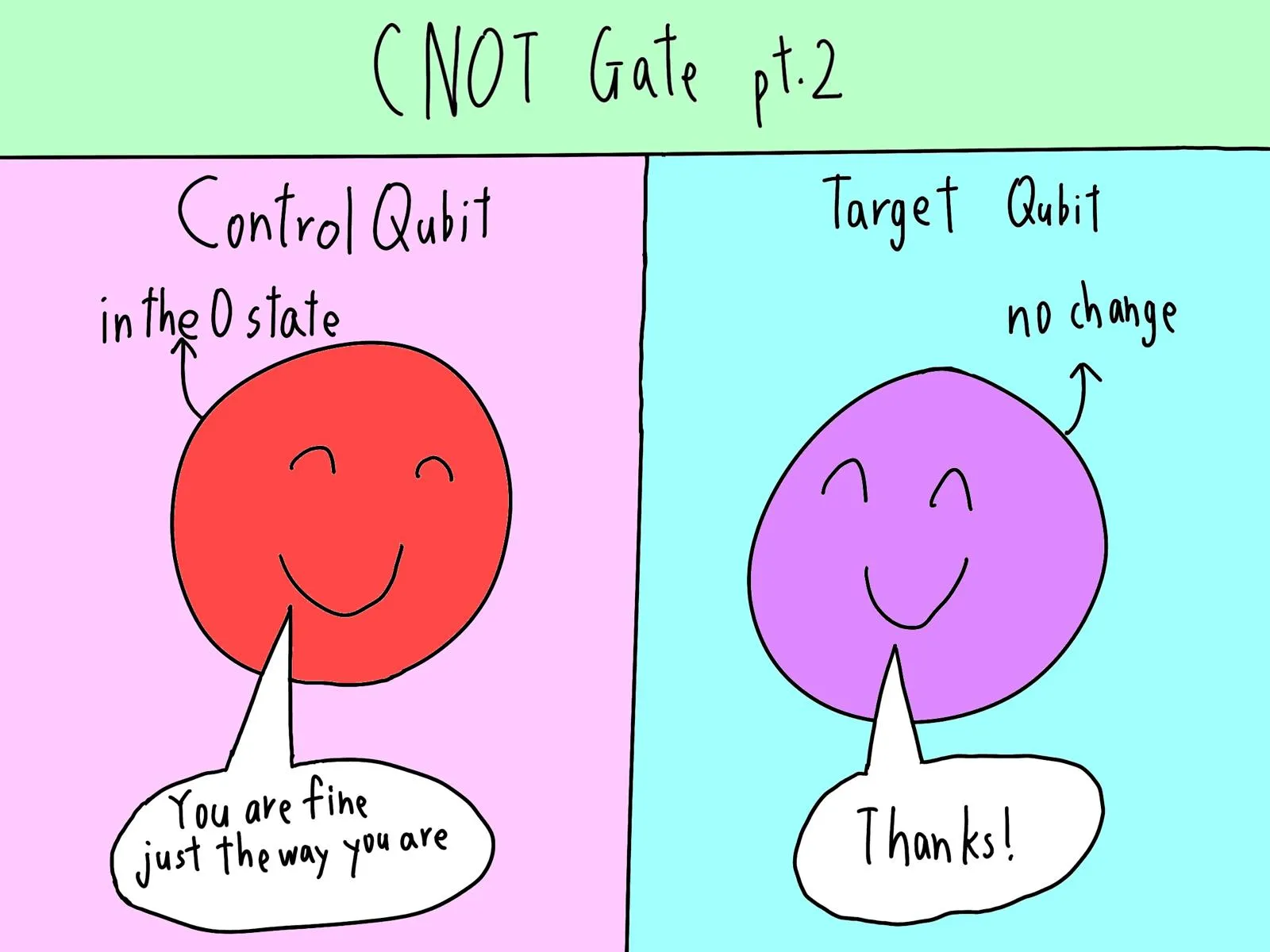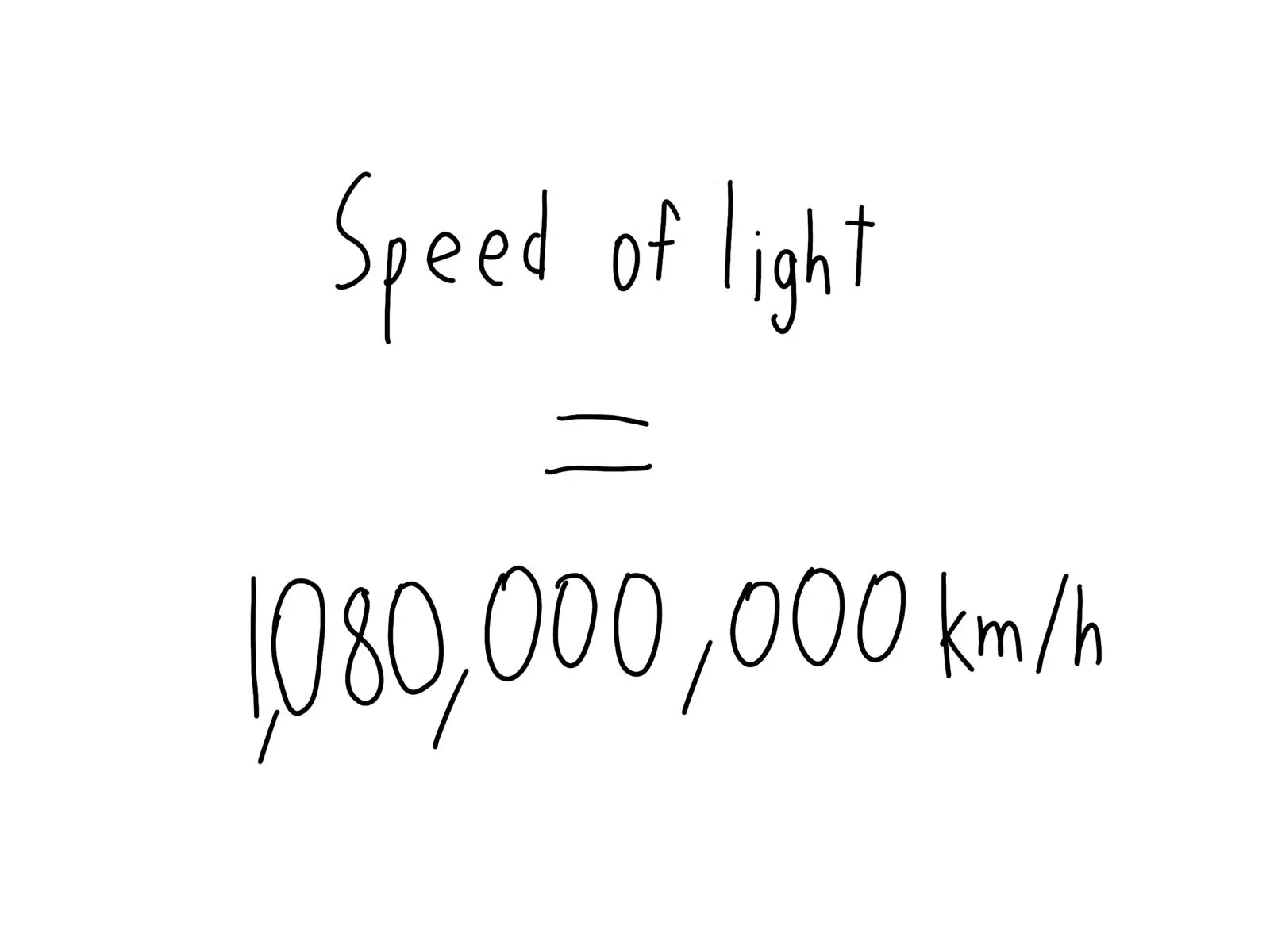Can Entanglement Enable Faster than Light Communication?
Introduction
Hi, I am Jaydon, a recent high school graduate interning at pQCee. This article is part 3 of a series on quantum mechanics for high schoolers and below. The other articles are:
- Intro to qubits, basics of superposition, pros and cons of quantum computers
- Further explanation of superposition and how Hadamard gates work
What is entanglement?
Entanglement is what happens when the state of 2 or more qubits depend on each other.
For example, if 2 qubits in superposition are entangled such that their state is the same and we measure one as in the 1 state, the other instantly collapses into the 1 state as well.
This will happen no matter how far apart entangled qubits are from each other.
CNOT gate
A common way to entangle qubits is using the Controlled NOT (CNOT) gate. The CNOT gate receives 2 inputs, a control qubit and a target qubit. If the control qubit is 0, nothing happens. But if the control qubit is 1, the target qubit is flipped, e.g. target qubit changes from 0 to 1 or vice versa.
Faster than light?
If measuring one qubit collapses the other instantly, no matter the distance, it seems like entanglement violates the law that nothing can travel faster than the speed of light. Does this mean that quantum mechanics can help us beat the universe speed limit through faster than light communication?
Unfortunately not. The process of measuring an entangled qubit in superposition yields a random result outside of our control so a message cannot be sent. No information is being passed between the qubits during the collapse as well so no laws of the universe are violated by entanglement.
Conclusion
Entanglement is unable to facilitate faster than light communication, nevertheless it is still a useful property of qubits that quantum computers can take advantage of through gates like the CNOT gate.
Acknowledgements
Much of my knowledge and inspiration regarding this quantum computing series came from the book "Quantum Computing for the Quantum Curious" (Hughes et al., 2021). It was very helpful in explaining concepts in quantum mechanics and quantum computing to high school students.

